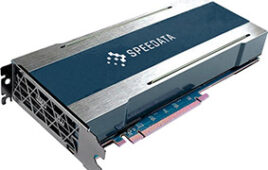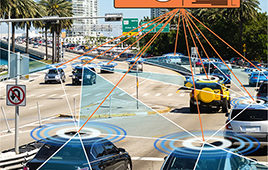Who Speaks for Science?
Rahul Kanakia, Stanford News Service What role can scientists play in public decisions about the development and deployment of weapons systems? As the United States continues to commit its troops and
 |
technology around the world, this question is worrisome to the public and to concerned scientists alike. According to Rebecca Slayton, a lecturer in the Program in Science, Technology, and Society, there’s some hope: Science gives experts an important, albeit limited, space for influencing public decisions. Slayton made her case February 19 at the annual meeting of the American Association for the Advancement of Science in San Francisco, where she showed how a relatively new science, computing, has — and has not — influenced public debate about missile defense in the United States. Missile defenses rely critically upon complex computers, and their software cannot be considered reliable until it is tested under realistic operational conditions. This fact was tragically demonstrated in the 2003 Iraq war when bugs in the Patriot missile defense system resulted in error, causing two friendly fire incidents. And since it is impossible to stage a trial nuclear war, missile defense systems can never be adequately tested and rendered free of bugs. Slayton has studied the history of computing and debate about missile defense from the late 1940s through today. In her talk she compared two missile defense debates, one over proposals to deploy anti-ballistic missile defenses in the late 1960s and the other over President Reagan’s Strategic Defense Initiative, or the “Star Wars” research and development program, in the 1980s. In both debates, computer professionals were among the many scientists who spoke out against the proposals to defend the United States from a Soviet nuclear attack, calling them technologically infeasible. In the 1960s, their arguments were easily dismissed as pessimism, but by the 1980s computer experts had gained more social and intellectual status as scientists. Using mathematical models to analyze complex systems they hadn’t actually worked on, their public remarks about weapons were more authoritative. And as they gained status in the Defense Department, they were included on more of its expert panels. When David Lorge Parnas, a software engineer, resigned from one of these in 1985, saying that reliable software couldn’t be written for a “Star Wars” system, the issue finally hit the front page of the New York Times. On the surface, the arguments of computer scientists may have seemed obvious. Even simple computer systems malfunction and crash. “How could you expect a computer system more complex than anything we use these days to work correctly the very first time it’s used?” Slayton asks. “And yet, people argued about it. What kind of knowledge do you need to bring to the table to close this argument down?” Slayton’s talk was part of a panel titled “Who Speaks for Science? Scientific Authority in the 21st Century.” David Kellogg, assistant professor of English at Northeastern University, spoke about the use of scientific authority in the intelligent design creationism movement. W. Wayt Gibbs, former senior writer for Scientific American who works for Seattle-based Intellectual Ventures, gave a journalist’s perspective on scientific authority. And Linda Billings of the SETI Institute presented an overview of the media coverage surrounding Harvard psychiatry Professor John E. Mack’s alien abduction research.




